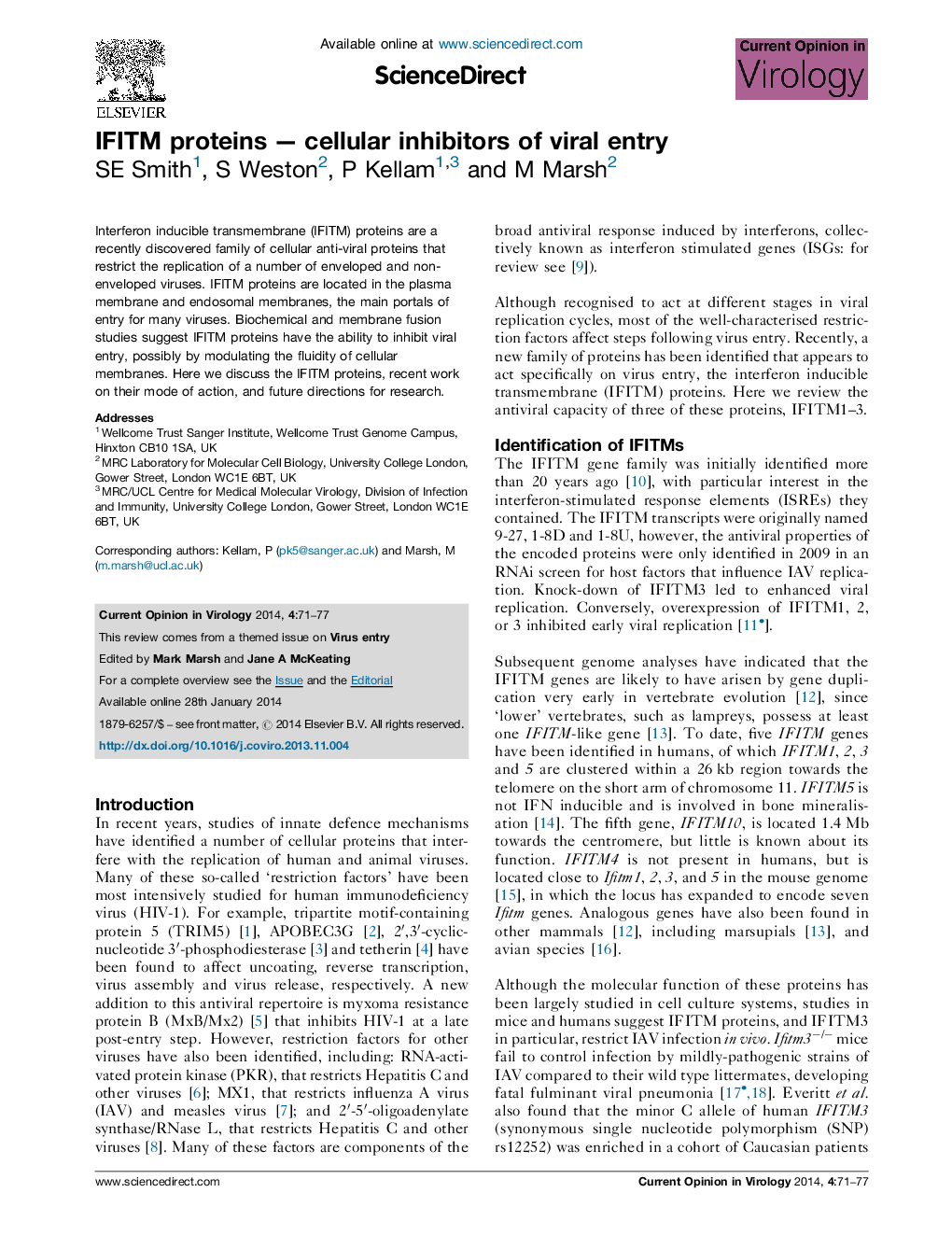| Article ID | Journal | Published Year | Pages | File Type |
|---|---|---|---|---|
| 5806728 | Current Opinion in Virology | 2014 | 7 Pages |
â¢IFITMs are interferon inducible membrane proteins that restrict viral infection.â¢Influenza infection is exacerbated in Ifitm3â/â mice.â¢A SNP in IFITM3 may increase the severity of influenza infection in humans.â¢Cellular distributions of IFITMs may determine the range of viruses they restrict.â¢IFITM expression modulates membrane fluidity.
Interferon inducible transmembrane (IFITM) proteins are a recently discovered family of cellular anti-viral proteins that restrict the replication of a number of enveloped and non-enveloped viruses. IFITM proteins are located in the plasma membrane and endosomal membranes, the main portals of entry for many viruses. Biochemical and membrane fusion studies suggest IFITM proteins have the ability to inhibit viral entry, possibly by modulating the fluidity of cellular membranes. Here we discuss the IFITM proteins, recent work on their mode of action, and future directions for research.
